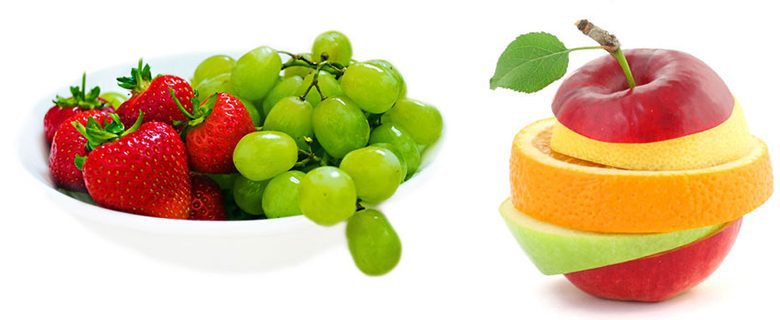
10 top tips for keeping healthy
After a blip with his health, Co-editor Martyn Sibley gives his advice on how to avoid physical dips and to stay healthy and happy.
Ever since I’ve been aware of having a disability – I have Spinal Muscular Atrophy, known as SMA – I’ve understood that the messages don’t go from my brain to all of my muscles. Even though I feel everything, I just can’t stimulate the muscles to move much or at all.
I’ve also always understood that it’s not degenerative, and therefore not life limiting. But that was about as far as my knowledge went, as I cracked on with living life.
Concurrent to all of my awesome adventures, I’ve found recently that my strength and stamina has dwindled a bit. This has pushed me into reading up more on SMA, listening to my body and re-calibrating my lifestyle a little. Moreover I’ve had to work on not freaking out or getting down about it.
Here are some helpful lessons I’ve learnt in the past 12 months about looking after my health and wellbeing. I think they’re applicable whether you’re disabled or not:
1) Overall in life I try to make sure I’m working on my 4 pillars the physical, mental, emotional and spiritual aspects of life. I learned these 4 pillars in the book Choose Yourself by James Altucher.
2) Our body really is our temple. The abuse I gave my body in my 20s is biting me on my bottom a little. So now I try to eat better, sleep better and get plenty of exercise.
3) “Food is thy medicine,” Hippocrates once said. Personally my diet has never been good. In understanding that my body needs protein due to SMA, and vitamins/minerals like anyone else, I’ve adjusted both what I eat and am taking supplements too.
4) One supplement I started taking a couple of years ago is Toda Heart of Gold. It has been great for activating my enzymes, cleaning my arteries, and helping my circulation & immune system work better. I also take Omega 3, vitamin C and Glucosamine.
5) When it comes to, I’m awaiting a physiotherapy referral to move/stretch my tight muscles and ligaments again. This service stops at age 18! I also go to a Health Recovery Tai Chi class. Finally I attend a weekly disability swimming session at my local pool.
6) To keep my mental muscle strong, and creating new ideas for work and life, I try to read more. I also talk to interesting experts in all parts of the world.
7) For my emotional state I either solve (or at least understand) any given problem. I reduce unnecessary negative influences around me, and at the very least ensure things I can’t control don’t penetrate my thinking.
Recently I woke up one day and couldn’t sit up properly! I reached out to my friends, our disabled community and professional experts. I created a plan, found a short term solution and am working to a longer term one.
In particular I feared I might die younger due to SMA, having had such a sudden issue. I reached out to SMA support UK and Professor Kevin Talbot. Without giving definite answers, they still helped me feel more positive and in control again. Apparently with postural and respiratory management, I should live as long as anybody else.
8) The word ‘spirituality’ evokes many types of reactions. For me this is about living in the moment. We all have a tendency to look back at regrets, and forwards to unknown situations with fear.
So I’m trying to practice Mindfulness. It gives us tools to acknowledge and appreciate what is happening now. By seeing, hearing, smelling, touching and tasting the moment we can feel amazing. To also understand the good things around us, like the people we have around us, is so important. There are a lot of books out there that talk about this practice, and resources online.
9) Once we are more aware and stable in ourselves, everything else follows more easily. For example, fighting for social care, wheelchairs, accessible housing, adapted transport, employment and so on.
10) One problem of constantly focusing on ourselves is being narrower minded and selfish. Life is about balance. Whilst I urge people to understand their own difficulties (both internal and external), people should not always be so serious. Please have fun, learn new skills, try new hobbies and help out other people in need. These are all equally as important for our happiness and fulfilment.
Please understand this is only my experience from a year of difficulty, struggles and exploration, but I hope in some way they can help you. I’d love to know your thoughts and your experiences too?
By Martyn Sibley
Check out…
• Snow-capped mountains of Austria
• The app that could change the way autism is diagnosed
• Survivor personalities – uncovering resilience, finding happiness
Get in touch by messaging us on Facebook, tweeting us @DHorizons, emailing us at editor@disabilityhorizons.com or leaving your comments below.
Great advice Martyn – since going deeply into wellbeing myself, I have started a newsletter and offer a free report on detoxing you might find useful – take a look on http://www.resource-me.com
Loving the whole blog and the magazine as well, so I recommended it on my blog, in my top 5 Disability resources: http://nottheusualmotivationalblog.blogspot.ro/2014/12/5-disability-support-and-motivation.html